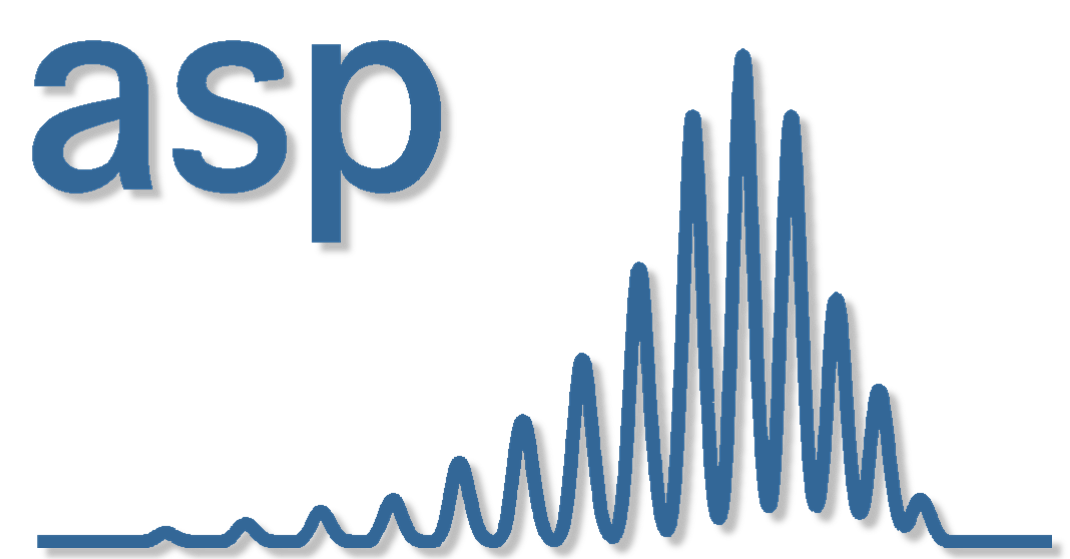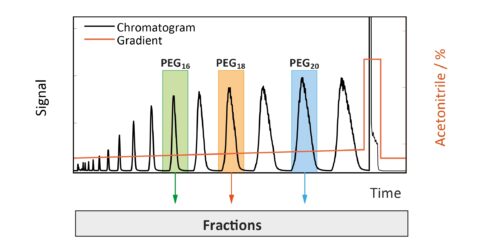Preparative Isolation of Pure Single PEG Homologs
In a recent open access paper we report on the isolation of individual homologs of polyethylene glycol (PEG) by preparative reversed-phase chromatography. Building upon a previously developed thermodynamic model, we were able to describe accurately the retention times of individual homologs based on their size, temperature, and mobile phase composition under linear, diluted conditions. The model has been extended to predict the limiting retention times also for linear gradient operation under preparative conditions, enhancing its practicality. Our study explores both isocratic and gradient-based separations, specifically under strongly overloaded conditions. The results demonstrate the remarkable achievement of baseline separation for homologs up to 3000 g/mol. Notably, we have successfully achieved quantitative production of pure single homologs with molar weights up to 1000 g/mol through the utilization of an automated setup. This advancement shows the potential of HPLC for large-scale separation and purification of PEG homologs, opening up new possibilities for their practical application. Access our paper now to gain insights into the efficient chromatographic separation of PEG homologs at preparative scale.
Publication details:
Malvina Supper, Rosanna Jost, Benedikt Bornschein, Malte Kaspereit
Separation of Molar Weight-Distributed Polyethylene Glycols by Reversed-Phase Chromatography—II. Preparative Isolation of Pure Single Homologs.
Processes 11 (2023) 946.
DOI: 10.3390/pr11030946
The work was supported by the German Science Foundation (DFG) through the Collaborative Research Centre CRC 1411 “Design of Particulate Products”.

